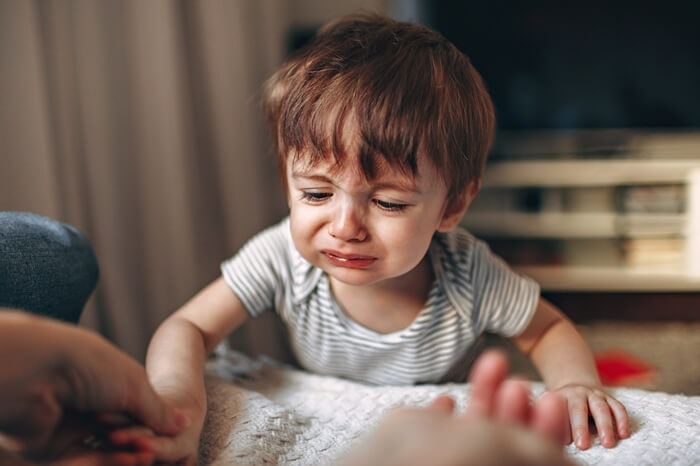


Separation Anxiety in Toddlers: A Comprehensive Guide

Separation anxiety is a normal part of child development, commonly peaking between the ages of one and two, coinciding with an increased understanding of parent-child relationships. Though it can be challenging, it's essential to know that this phase signifies a healthy attachment and cognitive growth. This article seeks to provide a deeper understanding of separation anxiety in toddlers and offers effective strategies for managing it.
Understanding Separation Anxiety
Separation anxiety in toddlers stems from their developing cognitive skills. They understand the concept of object permanence - the realisation that objects (including people they love) continue to exist even when not perceived. This knowledge coupled with limited understandings of time and space can result in distress when separated from caregivers.
Symptoms can vary, but some common ones include excessive clinginess, crying or throwing tantrums when a caregiver is out of sight, difficulty sleeping, and regression in previously mastered skills such as toilet training.
Strategies to Manage Separation Anxiety
While it may be challenging to witness your child in distress, there are several strategies that can help mitigate separation anxiety:
Establish Predictable Routines: Routine provides a sense of security for toddlers. Having a consistent goodbye ritual can be particularly helpful. This could be as simple as a hug and a wave, coupled with reassurance that you'll return.
Gradual Desensitisation: Gradual exposure to separation can help build your toddler’s tolerance. Start by leaving them for short periods with a trusted adult and gradually increase the duration.
Comfort Objects: Providing a familiar item such as a favourite toy, blanket, or even a piece of clothing that smells like you can provide a sense of security in your absence.
Positive Reinforcement: Encourage and reward your toddler's progress in managing separation. Celebrate their achievements, however small, to boost their confidence.
Communicate Effectively: Use simple language to explain where you’re going and when you'll return. Always assure them of your return. Reassurances provide comfort and instil trust.
Model Confidence and Calm: Children often take cues from their parents. If you appear anxious or guilt-ridden during separations, it can exacerbate their fears. Display a confident, calm demeanour to reassure them that everything is okay.
Understanding & Empathy: The Key to Success
It's crucial to approach separation anxiety with understanding and empathy. Avoid getting frustrated or minimising their feelings. Empathise with their fears, reassure them, and maintain patience. Over time, their understanding of the world will mature, and they will gain the confidence to manage separations more comfortably.
Wrap-Up
Remember, separation anxiety is a normal part of toddler development, reflecting your child's deep bond with you and their growing cognitive abilities. While it can be a stressful time, it's usually a phase that children outgrow.
If your child's separation anxiety persists beyond the toddler years, is severe, or hinders their daily activities, consider seeking advice from a paediatrician or child psychologist. They can provide guidance tailored to your child's specific needs.
Navigating toddlerhood, with all its ups and downs, can be an enriching journey. It's a time to foster deep bonds, nurture resilience, and cultivate independence in your little one. Patience, understanding, and a dollop of love are your best companions on this beautiful journey.





